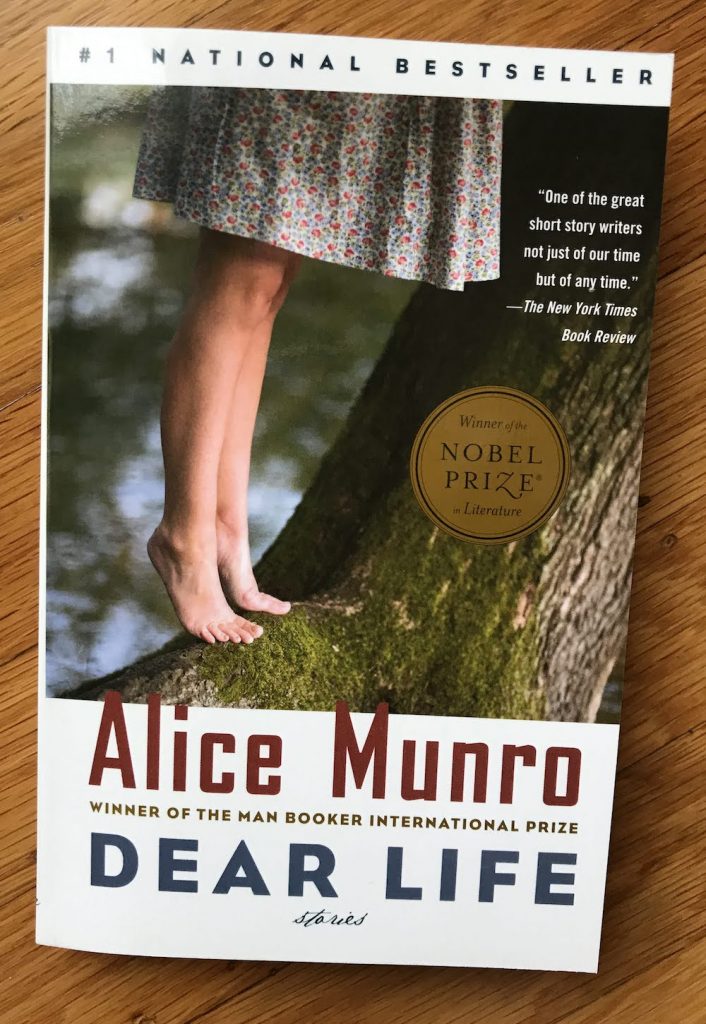
Dear Life
by Alice Munro
published by Vintage Books (Random House), New York
2012
I came to this collection of short stories knowing that Alice Munro had won international recognition for her outstanding writing, but not knowing if I would ENJOY it. I do! I’m delighted (and deeply impressed) by her remarkable clarity, her sharply observed descriptions of human behavior, her characters’ methods of acting out their emotional states, and her spare, crisp, and often bleak Ontario landscapes.
She says SO MUCH so efficiently! Two sentences in and I am THERE.
The collection of short stories has several themes, and the one I choose to emphasize is: turning points. Our characters decide to reach out to a stranger; have a spontaneous love affair on a train; decide NOT to return from war to their awaiting family; try to resist looking into the open casket… and these decisions do (or don’t!) change the trajectory of their lives. There is a tension between things that happen to them, their relative acceptance of circumstances, and how long they can accept things as they are before fleeing or being cast out.
The interactions are largely interpersonal, and feel like large dramas playing out on small, domestic stages. The women in particular are constantly balancing their limited options and their opportunities, rolling with what is expected of them – until they won’t. Social pressures erupt in judgments of all sorts, invariably against women who don’t try hard enough, or try too hard – the acceptable zones are small and ill-defined. Characters face conservative, conformist social pressures with a 1950s-70s weight that I’d characterize as “American mid-western,” though these stories are emphatically Canadian. (SO CANADIAN.)
From the first story I marvelled at her descriptions. How can the increasingly exaggerated and theatrical goodbyes people make through windows be so immediately and clearly written? You may not know someone’s height, or the pattern on their shirt, but you are quickly led to their careful manner, their sense of privacy, the way they speak when angry, the compromises they have made to be themselves, and what those cost them.
I have fussed over certain turns of phrase in writing about other authors, and I can say that Munro is doing something else: her language is brisk and sharp, cool and clear in a non-showy way, and all the more stunning for it.
It will be difficult to tolerate less skilled, more verbose stories by other authors for some time…
